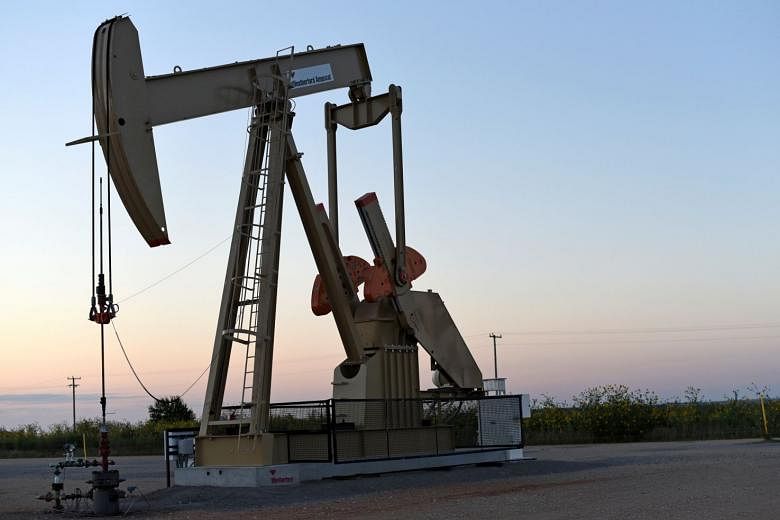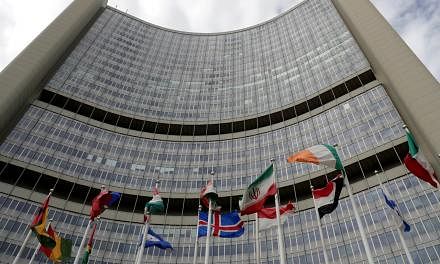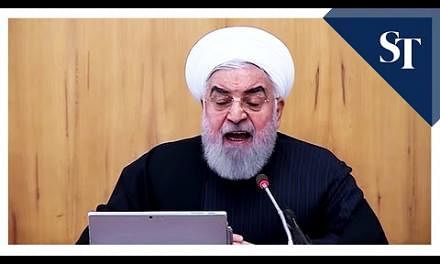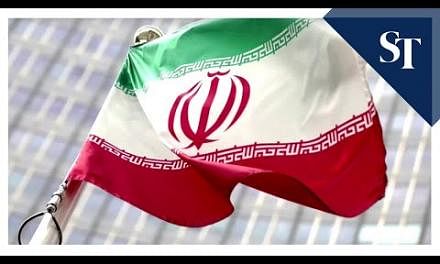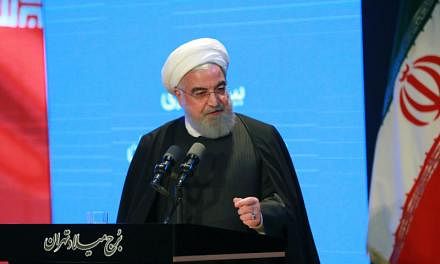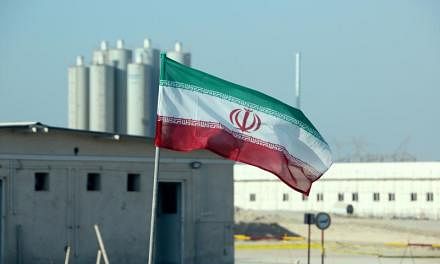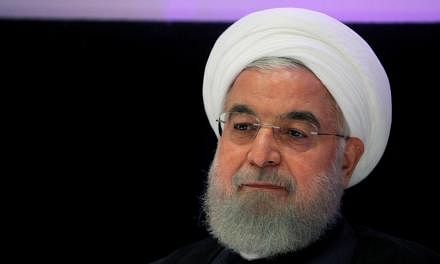NEW YORK (BLOOMBERG) - Crude held near US$70 a barrel after US President Donald Trump withdrew from the Iranian nuclear accord and said new sanctions will be imposed on Opec's third-biggest oil producer.
Futures were up 1.4 per cent from Tuesday's settlement in early Asian trading, though they were little-changed from post-close US levels. They'd pared earlier losses in New York on Tuesday (May 8) after Trump confirmed his withdrawal from the 2015 deal that was intended to halt Iran's quest for atomic weapons. Countries that demonstrate a commitment to reduce oil purchases from Iran over a 180-day wind-down period may be able to get "significant reduction exceptions" from sanctions, the US Treasury said.
Meanwhile, the US benchmark received a boost after the American Petroleum Institute was said to report a 1.85 million-barrel drop in US crude stockpiles last week. Distillate inventories were said to have fallen the most since 2004.
The sanctions aren't "going to take so much oil off the market as to be a real big event, but it's certainly something that supports prices," said James Williams, president of energy researcher WTRG Economics. Meanwhile, the drawdown in distillate inventories is "bullish and worth a buck-and-a-half on its own."
The US benchmark crude surged above US$70 a barrel to start the week as traders speculated on Trump's next move against the Islamic Republic. The US will be working with its allies to "find a real, comprehensive and lasting solution to the Iranian threat," Secretary of State Mike Pompeo said in an emailed statement.
"It should be stronger for prices," said Tariq Zahir, a commodity fund manager at Tyche Capital Advisors LLC.
West Texas Intermediate oil for June delivery was at US$69.99 a barrel at 6:53am in Singapore. The contract settled at US$69.06 a barrel on the New York Mercantile Exchange on Tuesday but carried on rising in after-hours trade.
Brent for July settlement dropped US$1.32 to end the session on Tuesday at US$74.85 on the London-based ICE Futures Europe exchange.
Iran's President Hassan Rouhani said the nuclear agreement remains in force between the Islamic Republic and five other countries that signed it. Iran believes that it can continue to receive the benefits of the deal by working with the other signatories, Rouhani said in a televised address.
French President Emmanuel Macron said on Twitter that "we will work collectively on a broader framework, covering nuclear activity, the post-2025 period, ballistic activity and stability in the Middle East, notably Syria, Yemen, and Iraq."
"There is still an open question on how strict the actions will be," said Michael Lynch, president of Strategic Energy & Economic Research in Winchester, Massachusetts. "It leaves him a lot of wiggle room."
Meanwhile, oil options traders are betting on a near-term price plunge. Volume on June WTI US$65 puts jumped above 19,000, the most actively traded on Tuesday. The options expire on May 17.
In the US, crude inventories likely increased by 1 million barrels last week, according to the median estimate of analysts surveyed by Bloomberg ahead of the release of EIA data on Wednesday.
The API tally was also said to show gasoline supplies fell by 2.06 million barrels, while crude supplies stored at the Cushing, Oklahoma, pipeline hub rose by 1.65 million barrels.
The US will cut its reliance on foreign oil to the lowest in more than 60 years as domestic crude output surges to record levels.
China bought record volumes of crude last month as some refiners made purchases anticipating disruptions to transporting oil during an international summit next month.
